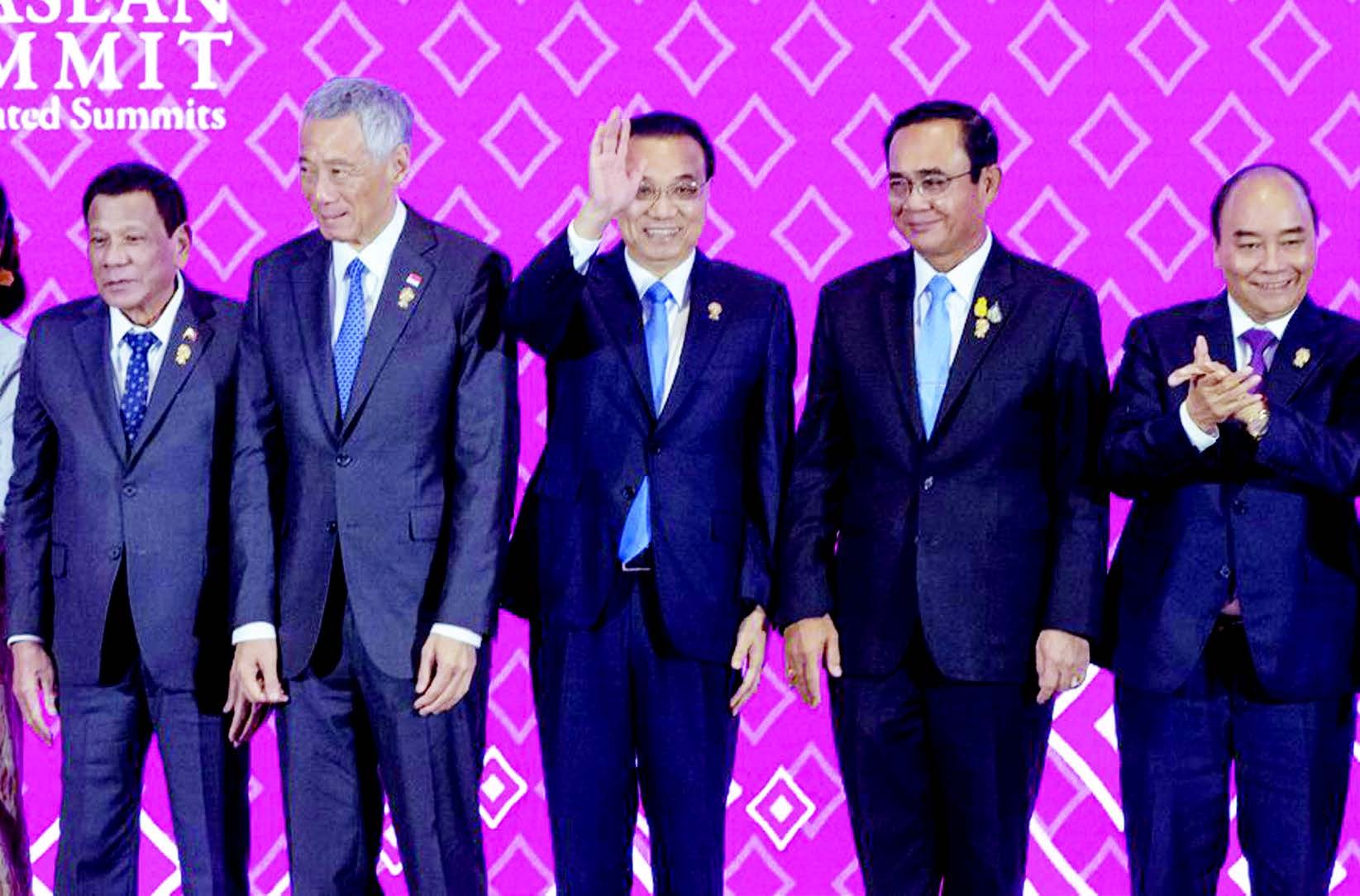ASEAN charts path for trade bloc

Nonthaburi, Nov: 4 Leaders from fast-growing Southeast Asian economies, China and other regional powers vowed Sunday to transcend conflicts over trade policies and territorial disputes for the sake of stronger economies and regional stability.
The ASEAN meeting’s host, Thai Prime Minister Prayuth Chan-ocha, said the group aims to reach a basic agreement on plans for what may become one of the world’s biggest trade blocs.
The proposed Regional Comprehensive Economic Partnership aims to level trade barriers between the 10 ASEAN members and six other countries in a bloc encompassing nearly a third of all global trade.
Prayuth and other officials said the aim was to have a final deal by next year. ASEAN also hopes to set a code of conduct with China regarding disputed waters in the South China Sea, he said.
Chinese Premier Li Keqiang told other leaders attending that Beijing was committed to forging such an agreement and to ASEAN’s central role in the region.
“Given the complexity in the international and regional situation, our cooperation is built on a stable structure and moving forward in a positive fashion,” Li said. “This is beneficial to the region and all parties involved.”
“We support stability in the region and by doing so we have been able to cope with the instability elsewhere in the world,” he said.
On the troublesome issue of the South China Sea, Li welcomed progress on negotiating a code of conduct aimed at taming aggressive actions that could set off armed confrontations in one of the world’s most disputed regions.
After being accused of delaying the start of talks for years while building artificial islands with military outposts on contested reefs, China agreed to commence negotiations and both sides announced that the first of three expected rounds was concluded in July.
Li called that progress “a very important landmark” for regional stability. He said China is committed to making headway in the negotiations with ASEAN members, four of whom — Brunei, Malaysia, the Philippines and Vietnam — are locked in the territorial disputes.
Two Southeast Asian diplomats told The Associated Press that in a tense meeting in Vietnam recently, Vietnamese diplomats questioned how the negotiations could progress while flotillas of Chinese fishing boats backed by China’s coast guard and navy were swarming into waters where Vietnam, the Philippines and Malaysia have exclusive rights under international law to exploit energy resources.
Chinese officials replied that ASEAN members should not allow one state “to hijack the COC process,” one of the diplomats said, referring to the code of conduct talks. The two diplomats spoke to the AP on condition of anonymity because of a lack of authority to discuss the issue publicly.
The meetings Sunday also touched on other challenges. U.N. Secretary General Antonio Guterres urged the leaders to wean themselves from reliance on coal-fired power plants whose emissions contribute to climate change that is felt keenly in the region in the form of extreme weather disasters and rising sea levels.
Recent News

Do not make expressions casting dout on election: EC
14 Apr, 2022
CM Bhatta says may New Year 2079 BS inspire positive thinking
14 Apr, 2022
Three new cases, 44 recoveries in 24 hours
14 Apr, 2022
689 climbers of 84 teams so far acquire permits for climbing various peaks this spring season
14 Apr, 2022
How the rising cost of living crisis is impacting Nepal
14 Apr, 2022
US military confirms an interstellar meteor collided with Earth
14 Apr, 2022
Valneva Covid vaccine approved for use in UK
14 Apr, 2022
Chair Prachanda highlights need of unity among Maoist, Communist forces
14 Apr, 2022
Ranbir Kapoor and Alia Bhatt: Bollywood toasts star couple on wedding
14 Apr, 2022
President Bhandari confers decorations (Photo Feature)
14 Apr, 2022











